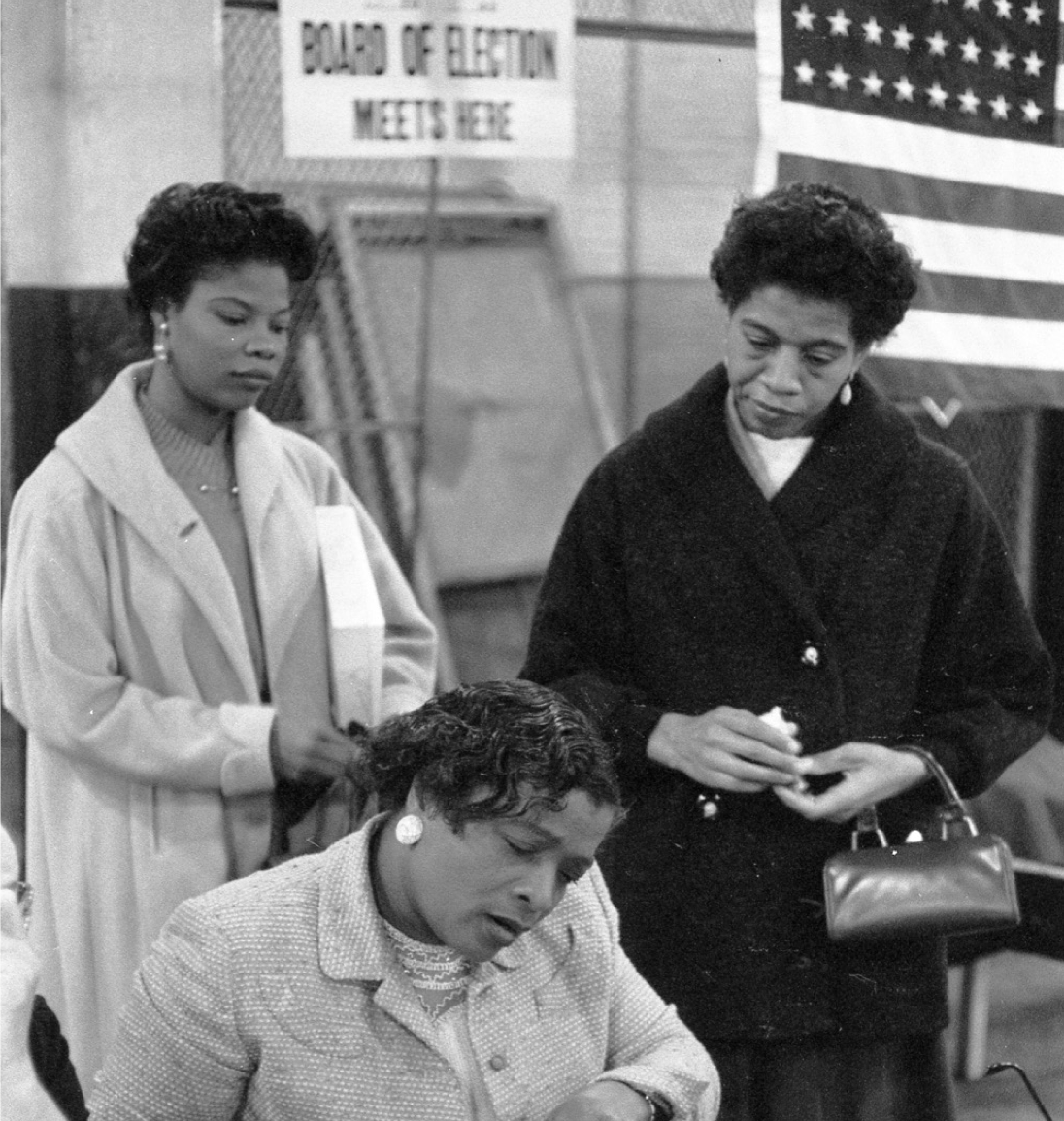Rocking the Vote
Emily Farris studies social capital and why black women participate more in politics.

Three African-American women at a polling place on Nov. 5, 1957, in New York City. (Photo courtesy of the Library of Congress)
Rocking the Vote
Emily Farris studies social capital and why black women participate more in politics.
In an era of historically low participation in American politics, what prompts civic engagement among marginalized groups? What role does community play in determining how these groups participate? These are some questions Emily Farris explores in her research.
“I’m particularly interested in how we approach the political inclusion of traditionally marginalized groups, whether it be black women, Latinos or immigrants to the United States,” said Farris, assistant professor of political science at TCU. “For me, the theme is the importance of community among marginalized groups. How does that affect political inclusion and the policies we see?”

Emily Farris, assistant professor of political science.
Farris and research collaborator Mirya Holman, assistant professor of political science at Tulane University, tackled why black women participate in politics at a much higher than expected level, a phenomenon not sufficiently explained by prior scholarship. Their findings were published in Politics, Groups, and Identities in 2014.
“We became interested in black women because it’s a category that’s not typically studied,” said Farris. “There’s really little scholarship that looks at the intersection of race and gender when it comes to looking at their simultaneous effects related to political participation.”
More black women voted in the 2008 and 2012 presidential elections than any other racial or gender group. Using traditional factors to explain political participation, such as education, income and social trust, researchers would expect to find much lower levels of participation. Farris and Holman argued that “social capital,” or “the positive social consequences of group membership,” is a key predictor of elevated participation among black women.
“No one really researches county sheriffs from the political side, but they are an important local political actor.”
Emily Farris
“We wanted to look particularly at social capital as an alternate explanation for what might be going on. One of the somewhat surprising results that we found is social capital can include different types of capital,” said the professor. “There can be the social capital you get from joining a bowling league, for example, and learning about group membership and trust in others by just going bowling weekly. Other faces of social capital are faith based.”
Farris’ research interests also involve elected politicians. She collaborated with Holman on another project focusing on county sheriffs and the role elected officials play in creating policies in the communities they serve.
Holman and Farris conducted a large survey of county sheriffs to see whether the elected officers’ attitudes on topics such as immigration and domestic violence affected the policies they put in place. “No one really researches county sheriffs from the political side, but they are an important local political actor,” said Farris. “They’re law enforcement, but they’re also elected and hold a lot of power in local government.”
The researchers’ results about sheriffs’ attitudes and domestic violence policies were published in Social Science Quarterly nearly a year ago. “We found that sheriffs who agree with what are known as ‘rape myths’ have less friendly domestic violence policies.
“Their deputies, for instance, might be less likely to inform a victim of domestic violence that they have a shelter resource or options for transportation to the hospital,” said Farris. “Who you elect and the policies they put in place shape the tone and attitude of the department. It’s really important that we pay attention to who we elect.”

Your comments are welcome
Comments
Related reading:
Features
Politics 101
Students appraise the political landscape
Features
PolitiFrog Jumps into the Election Fray
Students ’splain the campaigns and candidates.